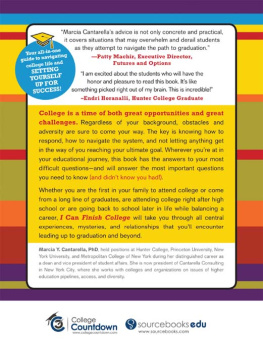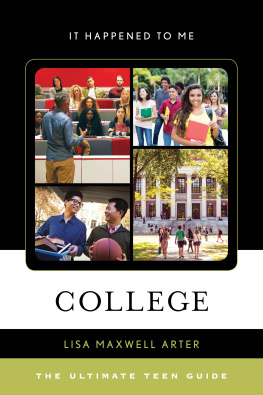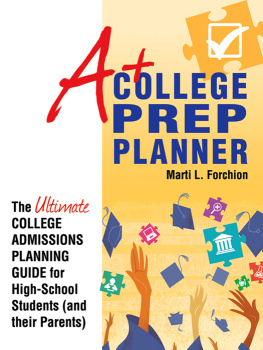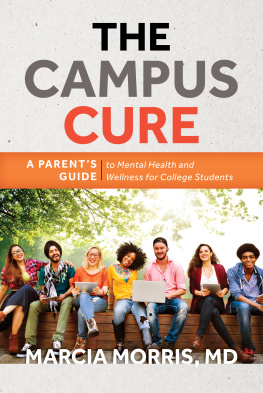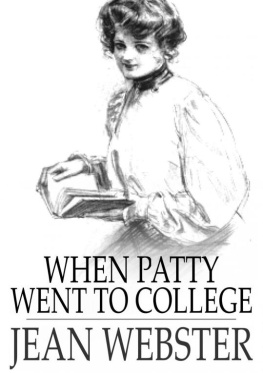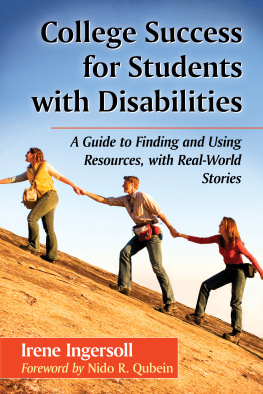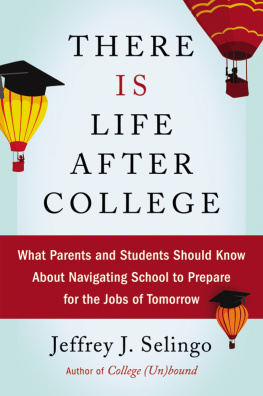
Copyright 2012 by Marcia Y. Cantarella
Cover and internal design 2012 by Sourcebooks, Inc.
Cover design by Sourcebooks, Inc.
Cover photo Imagezoo/Getty Images
Sourcebooks and the colophon are registered trademarks of Sourcebooks, Inc.
All rights reserved. No part of this book may be reproduced in any form or by any electronic or mechanical means including information storage and retrieval systemsexcept in the case of brief quotations embodied in critical articles or reviewswithout permission in writing from its publisher, Sourcebooks, Inc.
This publication is designed to provide accurate and authoritative information in regard to the subject matter covered. It is sold with the understanding that the publisher is not engaged in rendering legal, accounting, or other professional service. If legal advice or other expert assistance is required, the services of a competent professional person should be sought.From a Declaration of Principles Jointly Adopted by a Committee of the American Bar Association and a Committee of Publishers and Associations
All brand names and product names used in this book are trademarks, registered trademarks, or trade names of their respective holders. Sourcebooks, Inc. is not associated with any product or vendor in this book.
Published by Sourcebooks EDU, an imprint of Sourcebooks, Inc.
P.O. Box 4410, Naperville, Illinois 60567-4410
(630)961-3900
Fax: (630) 961-2168
www.sourcebooks.com
Originally published in January 2011 by lulu.com.
Library of Congress Cataloging-in-Publication Data
Cantarella, Marcia Y.
I can finish college : the overcome any obstacle and get your degree guide / Marcia Y. Cantarella ; foreword by John Rose.
p. cm.
Includes bibliographical references and index.
(trade paper : alk. paper) 1. First-generation college studentsUnited States. 2. People with social disabilitiesEducation (Higher)United States. 3. Educational attainmentUnited States. 4. Study skillsUnited StatesHandbooks, manuals, etc. 5. College student orientationUnited StatesHandbooks, manuals, etc. 6. Degrees, AcademicUnited StatesHandbooks, manuals, etc. I. Title.
LC4069.6.C36 2012
378.1982dc23
2012020533
Printed and bound in Canada.
WC 10 9 8 7 6 5 4 3 2 1
To Francesco and our children and their children and all children
The one who asks questions doesnt lose his way.
Akan Proverb
Because we dont always want to be stupid, uninformed, or belittled, we dont like to ask questions. For some reason, we think that we are supposed to know everything. When we dont, we dont let anyone know. Questions are not a sign of ignorance. They are an indication that you are broadening your scope, sharpening your skills, improving your capabilities. Inquiries indicate humility, the willingness to serve, share, and support. Questions keep you on track, define and broaden your boundaries, and remove limitations. Questions put you in touch and keep you in touch. Questions create and build resources, both natural and human, which can be very useful when there is no one around to answer your question. Your ego, the nasty little voice that is overconcerned with what other people think, will tell you not to ask questions. Tell ego to shut up, and then ask what you need to know. Who? What? Where? When? How? Why?
Ayanla Vanzant
Acts of Faith: Daily Meditations for People of Color
CONTENTS
FOREWORD
Every year many thousands of students and their parents struggle with the question of whether they have good-quality information to make informed decisions about college, academic, or career interests. The odyssey begins with finding the right college and asking questions such as What do I really need to know? and Can I get as good an education at a public school as at an elite private university? Once students are in college, their questions continue to multiply about finances, courses, courseloads, specialized programs, internships, cocurricular and extracurricular activities, and how to build a portfolio or skills and experiences that distinguish them from other applicants for graduate or professional school or for that first job after college.
To answer these questions, parents and students wade through countless reference and resource materials, look at the annual reviews by U.S. News and World Report and Princeton Review, talk to admissions officers, advisors, and counselors, and share information and impressions with classmates and their parents. Ultimately they make an informed decision. But for too many there remains the nagging question, Did I know what I really needed to know?
This question need no longer plague students or parents, because Marcia Y. Cantarella has distilled all the inside knowledge and perspective from her years of experience as a college administrator and dean into a book that answers not only all the common questions, but also the questions that most students do not even think about until too late in the process.
Dr. Cantarella has served at Ivy League, private, and public institutions and has a depth of knowledge about college admissions practices, policies, and protocols that is truly exceptional. She has served on many admissions and pipeline-program committees. I have personally benefited from her keen insights into the distinguishing characteristics driving student motivation and guiding administrator decision making.
Her appreciation of the academic rigors of various disciplines and her unerringly accurate evaluation of student talent and motivation have allowed her to pair students with opportunities for academic programs, scholarships, and fellowships that have been consistently good fits. She is, therefore, an invaluable resource for those who want a perspective on the mounds of publicly available data and analysis. If you want to hear from an insider who is vested in student success, who tells you what you need to know to make intelligent decisions without fear of omitting important information, then you need to readand useDr. Cantarellas book, I Can Finish College.
John Rose
Dean for Diversity and Compliance
Hunter College of The City University of New York
ACKNOWLEDGMENTS
This book is the product of many hands. I refer not just to the team that has helped me, in the past few months, bring it to a published reality, but also to the family that inspired me and the colleagues who empowered meand finally to the students who shared their lives with me.
I was born to a family of educators and leaders, including my paternal grandparents, Whitney Young Sr. and Laura Ray Young, who ran the Lincoln Institute in Kentucky, so that young Black men and women could find a path to success through education. My late father, Whitney Young Jr., opened doors to educational opportunity for all poor and disenfranchised peoples. My aunts Arnita Boswell and Dr. Laura Young Love were pioneering professors at the Universities of Chicago and Louisville, respectively, and my mother was on the faculty at Spelman College.
My colleagues at New York University, Princeton, Metropolitan College of New York, and Hunter College have given me the opportunity to serve, to lead, and to learn from extraordinary students who have survived college and who thrive today. Their stories inform much of this book. Special thanks to Deans William Long at NYU, Nancy Malkiel at Princeton, and John Rose at Hunter College.
Then there are the students who have sat before me over the twenty years that I have had the honor to serve them. They have come with aspirations, frustrations, disasters, and joys. We have strategized together to achieve goals or solve problems. We have celebrated wins large and small, from grades achieved to fellowships won, and now often marriages and children. Students are the real reason for this book, and I am so grateful that so many have allowed me to use their stories and their wisdom in it.
Next page
